In the 2023-2024 school year, the Ho Chi Minh City education and training sector has strongly transformed digitally in management and innovated teaching methods in schools. However, due to limitations in human resources and funding, the results have not been as expected.
Step by step implementation
According to statistics from the Department of Education and Training of Ho Chi Minh City, by the end of the 2023-2024 school year, about 80% of schools in the city have deployed digital learning materials. For primary schools alone, the shared digital learning materials bank system has a total of 22,838 lessons, including 5,068 level 1 learning materials (word files, powerpoint, pdf...), 17,770 level 2 learning materials (interactive lectures). Most schools have deployed digital platforms to promote online teaching and learning, synchronize teaching, testing and evaluation results with real data of students and schools. Notably, this is the first school year that the education sector has piloted digital citizenship skills education for students of 44 primary schools in Thu Duc City and 21 districts, while deploying a digital student record management system and electronic contact books.
Mr. Nguyen Thai Vinh Nguyen, Head of the Department of Education and Training of Thu Duc City (HCMC), said that the use of digital transcripts and electronic grade books helps schools to store, manage and use student transcripts more conveniently. In addition, this form of transcript helps teachers reduce the pressure on records and books, making the process of managing students' learning and training results transparent, and limiting shortcomings in editing learning results. However, through the actual implementation process, a number of teachers have limited IT skills, making the application of information technology not highly effective, and the level of software application is still slow compared to requirements. Currently, most schools do not have an IT staff because they cannot recruit. In addition, the construction, appraisal, sharing and updating of digital learning materials requires large financial investments to ensure that digital learning materials are of high quality, meeting the learning and research requirements of teachers and students.
Sharing the same opinion, Head of the Department of Education and Training of District 7 Dang Nguyen Thinh expressed that investment and technology development are more favorable in the non-public system, while public schools face difficulties due to limitations in facilities and investment costs. To solve the resource difficulties, District 7 implemented a project to establish a modern experimental practice center for 40 public educational institutions in the area from stimulus loans. This is a way to help schools quickly access modern teaching conditions in the context of limited funding.
With a different approach, Tran Hung Dao Primary School (District 1) successfully built a digital library model by dividing the implementation plan into several phases. In the first phase, the school focused on some basic items such as operating the library management software system, providing online documents for teachers and students when they need to read books at home or look up via the internet. In the next phase, teachers and students are provided with personal accounts to look up documents, participate in comments, and share books they have read. When resources become abundant, the library is expanded to become a place for professional activities, supporting group work for students and teachers.
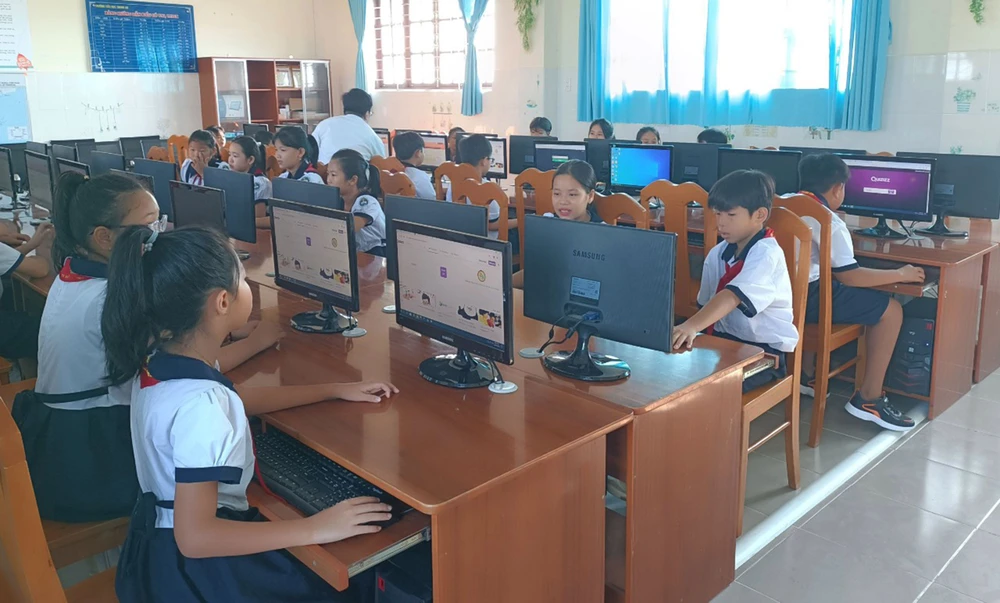
Pay attention to the human factor
Mr. Le Duy Tan, Head of the Secondary Education Department (Ho Chi Minh City Department of Education and Training), said that human resources play an important role in implementing digital transformation because without operators, the technology infrastructure cannot be effective. When there are operators, it is necessary to avoid the situation where each place implements a different model, building a magnificent learning resource warehouse to compete for achievements without being based on the actual learning needs of students. Therefore, digital transformation needs to be controlled, not following a common model but based on actual conditions and suitable for the capacity of learners at the unit. From another perspective, according to Deputy Director of the Ho Chi Minh City Department of Education and Training Nguyen Bao Quoc, schools should not wait until they have money and resources to implement. Instead, there needs to be a long-term investment strategy, dividing the implementation plan into many specific items for each school year to exploit and use resources effectively.
Leaders of the Departments of Education and Training recommended that the Department of Education and Training of Ho Chi Minh City issue a document guiding the development and implementation of a long-term financial plan to ensure a stable source of funding for the implementation of digital student records, and at the same time issue regulations on the use of digital signatures in management and teaching activities in schools. During the implementation process, localities need to proactively apply periodic backup and reserve measures to ensure data integrity and recovery, and meet security requirements and student privacy. In particular, in the context of limited resources, digital transformation needs to be implemented on a rolling schedule for each grade level per school year to ensure effectiveness.
Director of the Department of Education and Training of Ho Chi Minh City Nguyen Van Hieu said that in the 2024-2025 school year, the education and training sector will focus on promoting digital transformation, aiming to implement the school year's theme of "Discipline, responsibility, innovation, digital transformation to improve the quality of education and training in Ho Chi Minh City".
MINH QUAN
Source: https://www.sggp.org.vn/go-nut-that-chuyen-doi-so-giao-duc-post754702.html


![[Photo] Looking back at the impressive moments of the Vietnamese rescue team in Myanmar](https://vstatic.vietnam.vn/vietnam/resource/IMAGE/2025/4/11/5623ca902a934e19b604c718265249d0)


![[Photo] Phuc Tho mulberry season – Sweet fruit from green agriculture](https://vstatic.vietnam.vn/vietnam/resource/IMAGE/2025/4/10/1710a51d63c84a5a92de1b9b4caaf3e5)

![[Photo] Summary of parade practice in preparation for the April 30th celebration](https://vstatic.vietnam.vn/vietnam/resource/IMAGE/2025/4/11/78cfee0f2cc045b387ff1a4362b5950f)
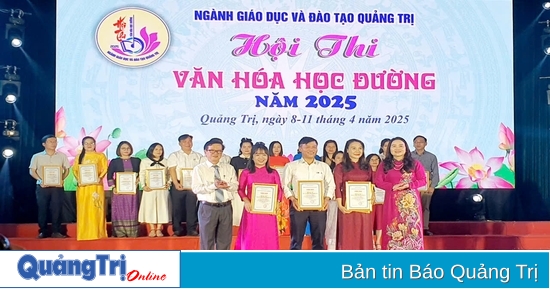

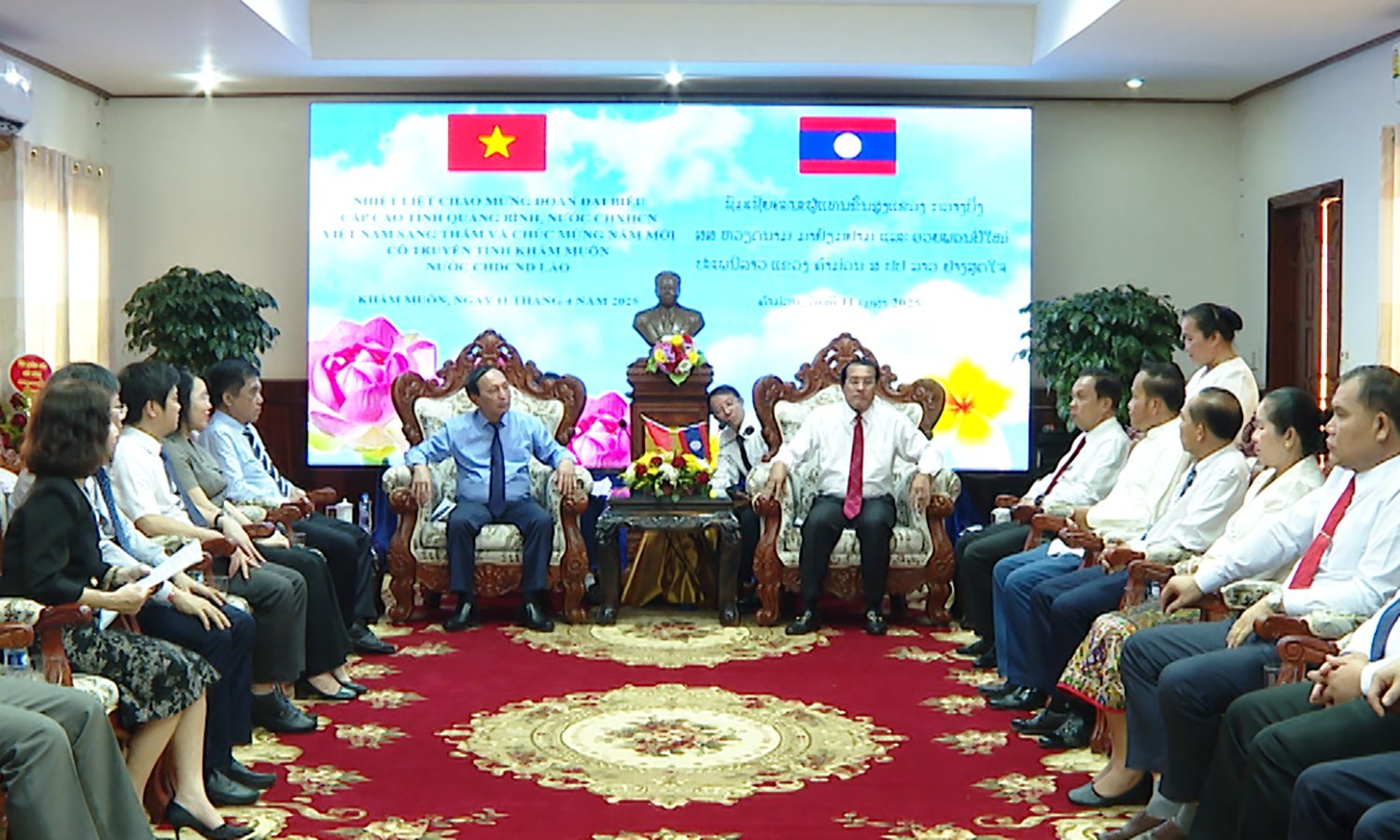


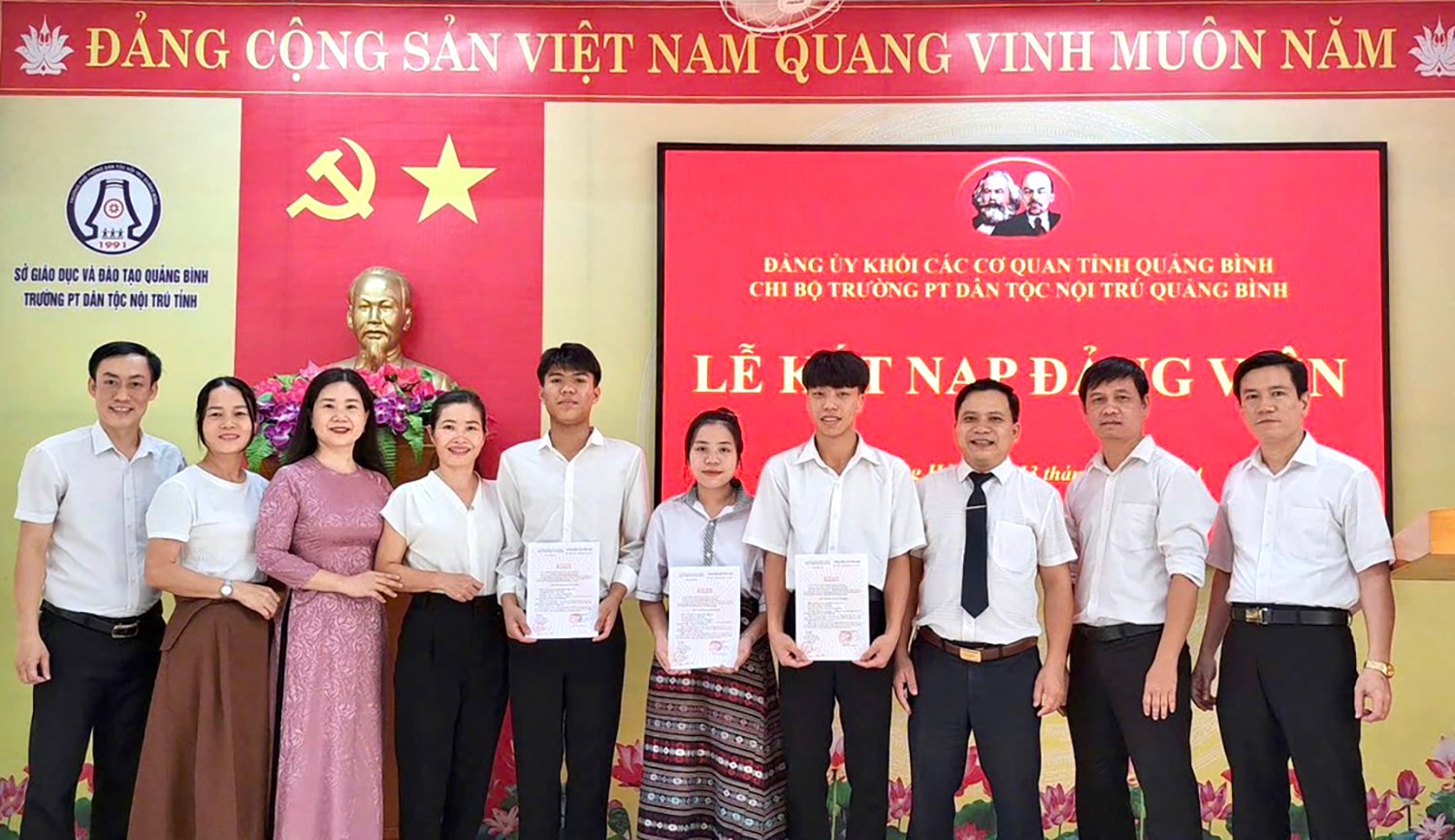














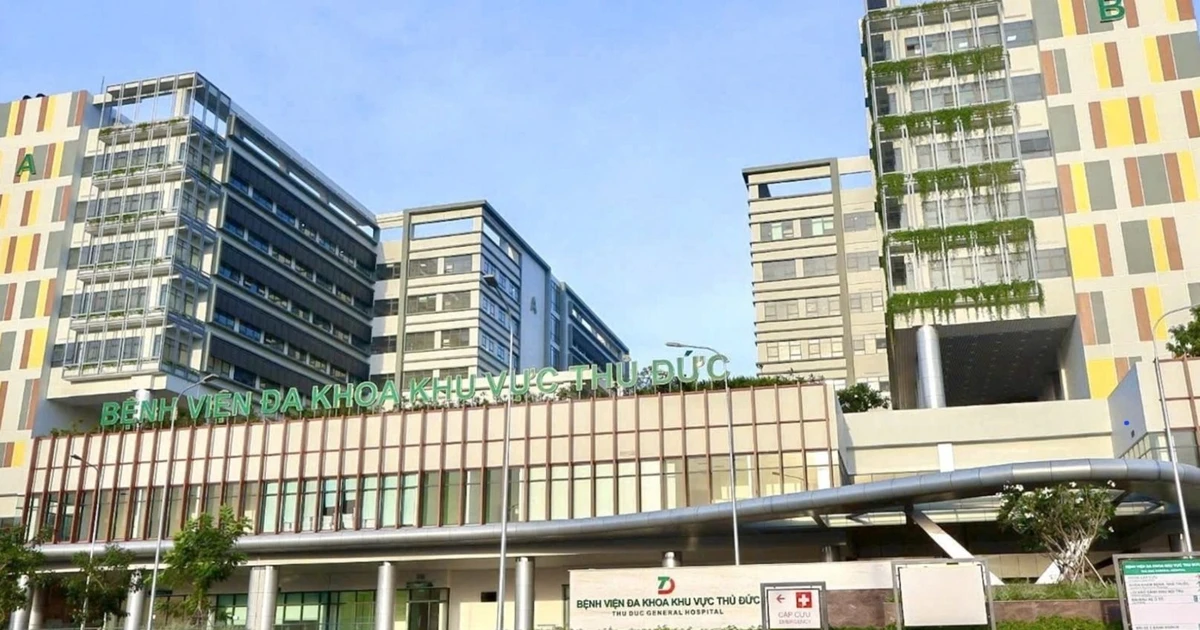
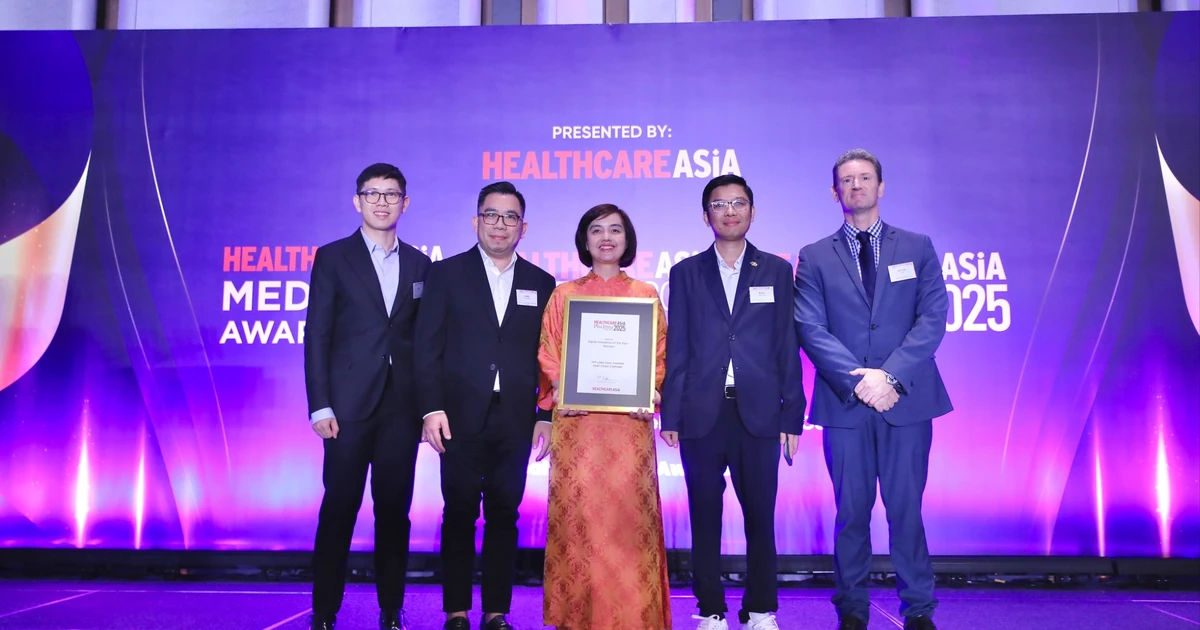
![[Photo] Prime Minister Pham Minh Chinh chairs meeting to discuss tax solutions for Vietnam's import and export goods](https://vstatic.vietnam.vn/vietnam/resource/IMAGE/2025/4/10/19b9ed81ca2940b79fb8a0b9ccef539a)






































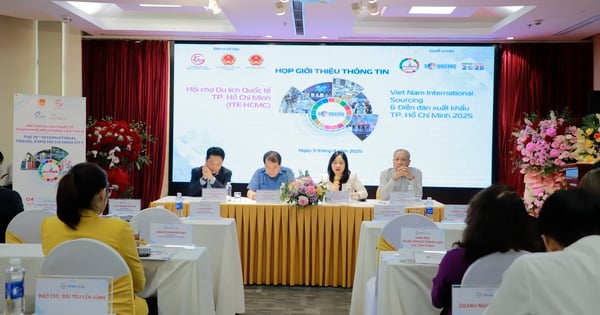


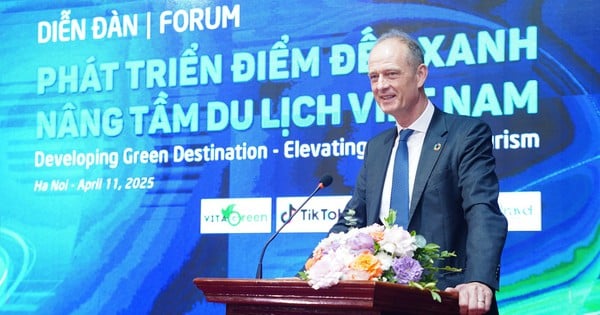




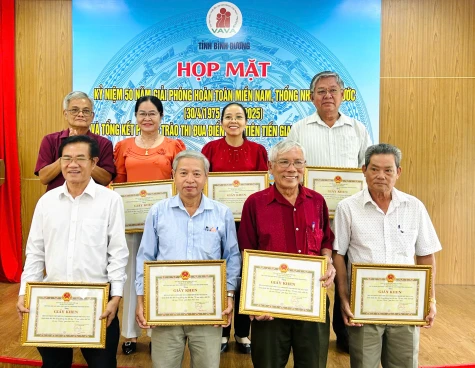

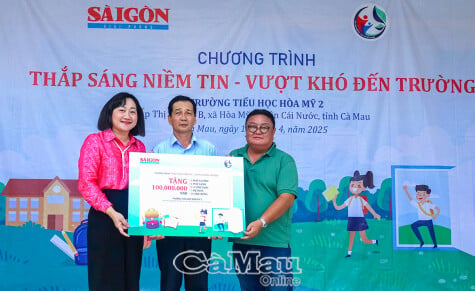



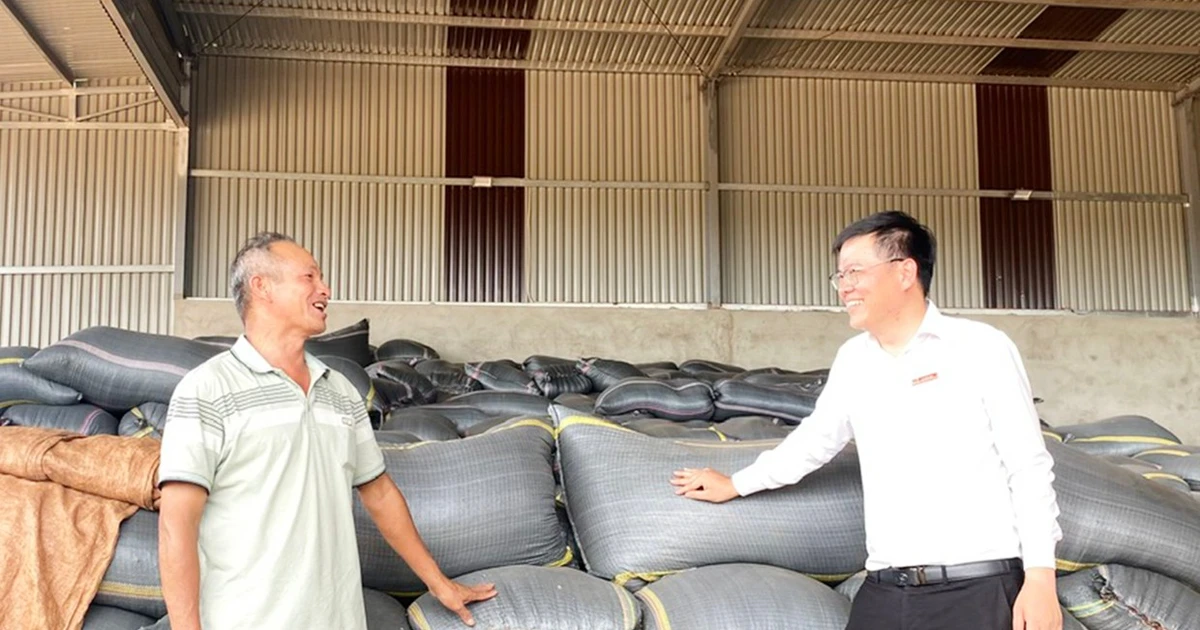












Comment (0)